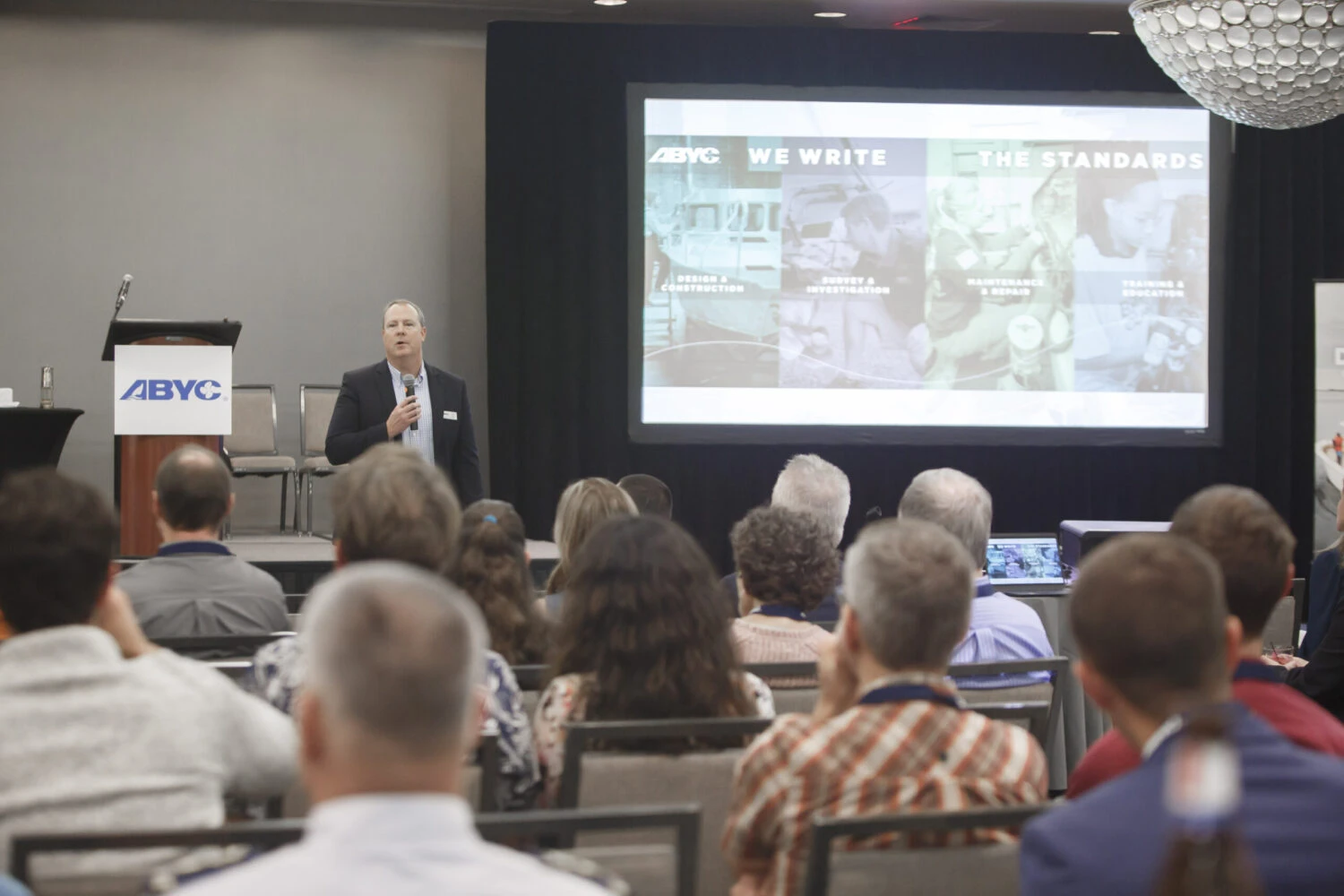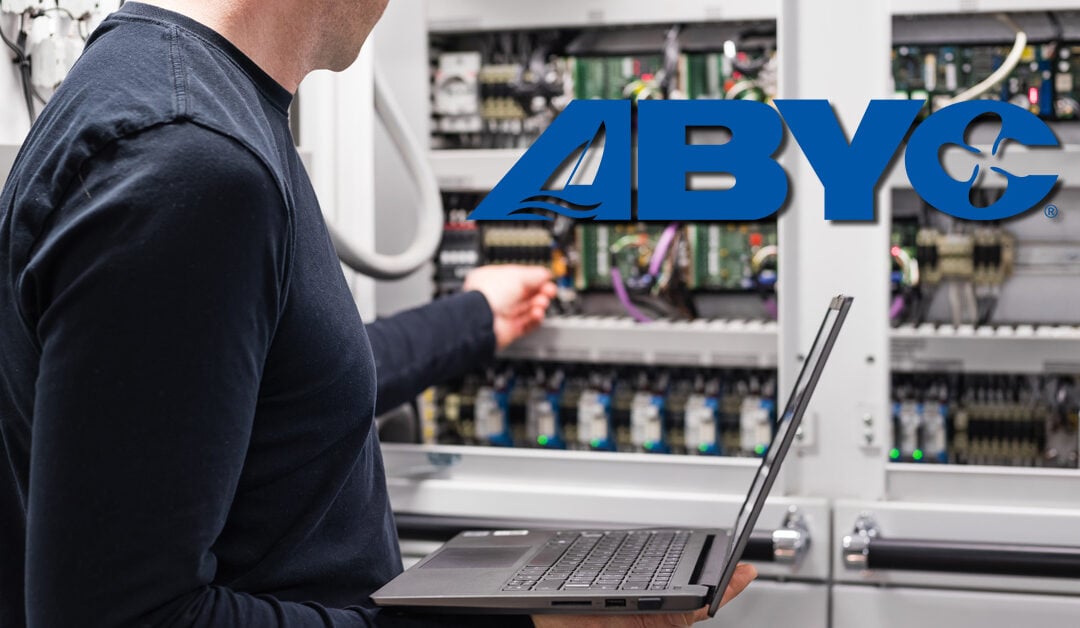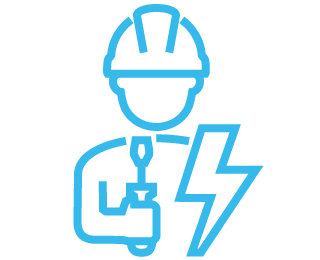When it comes to boating; safety and reliability are not optional. Yachts and recreational vessels face unique challenges because every system onboard is exposed to constant motion, vibration, water, salt, and heavy loads. To help ensure that boats are built, maintained, and repaired to the highest safety standards, the American Boat & Yacht Council (ABYC) sets technical guidelines that the marine industry follows.
Understanding ABYC certification is important for yacht owners, because it directly impacts the safety, insurability, and long-term performance of their vessel.
What is ABYC?

The American Boat & Yacht Council, better known as ABYC, is a nonprofit organization founded in 1954. Its mission is to develop and maintain safety standards for recreational boating in the United States and abroad.
ABYC is not a government agency, but its guidelines are so widely respected that they are recognized by the U.S. Coast Guard and frequently cited in legal proceedings, product liability cases, and Requests for Proposals by organizations like the Navy and Department of Homeland Security.
ABYC’s standards are developed by committees of hundreds of marine professionals, including boat builders, surveyors, engineers, and manufacturers. These committees meet regularly to review new technology, analyze accident data, and revise safety requirements to keep up with the evolving marine industry. As a result, nearly ninety percent of boats on the water today have been built to ABYC standards, and studies show that ABYC compliant boats are far less likely to be involved in accidents or fatalities compared to those that are not.

Image Source – https://abycinc.org/news/stw2026_savedate/
The Value of American Boat & Yacht Council Certification
ABYC certification does not apply to boats themselves, but rather to the professionals who build, maintain, and repair them. When a technician is ABYC certified, it means they have gone through a rigorous training and testing process to demonstrate their knowledge of ABYC standards. This certification is valid for five years and requires recertification through additional education to ensure that technicians stay up to date with industry changes.
There are different certification paths available, covering areas such as marine electrical systems, diesel and gasoline engines, marine corrosion, composite construction, refrigeration, and overall marine systems. Some certifications are designed for hands-on technicians who install and service systems, while others are geared toward advisors and surveyors who evaluate compliance and safety without performing the work themselves.
For yacht owners, choosing an ABYC-certified professional provides confidence that the work being performed is backed by recognized safety standards. It is not just a mark of technical competence, but also a signal of professionalism and credibility.
Why Electrical Certification is Critical
Among all ABYC programs, electrical certification is often considered the most important. Marine electrical systems are far more complex than those in a household environment because they involve both AC and DC systems, generators, shore power integration, bonding and grounding networks, and sensitive electronic navigation equipment. Mistakes in marine wiring can have serious consequences, from fire hazards to electrical shocks and system failures at sea.
An ABYC-certified marine electrician understands how to size wiring correctly, protect circuits, and terminate connections to prevent overheating. They know how to eliminate stray currents that can harm swimmers or cause rapid corrosion of underwater metals like shafts and through-hulls. They are also trained to safely install modern technologies such as lithium battery banks, solar arrays, and advanced navigation electronics without compromising safety. This level of expertise ensures that electrical systems function reliably, comply with ABYC’s E-11 electrical standards, and provide peace of mind every time the vessel is in use.
Risks of Ignoring Standards
When yacht owners hire technicians who are not ABYC certified, they may be exposing themselves to serious risks. Undersized wires or the absence of proper circuit protection can lead to onboard fires. Poorly made connections or improper grounding can cause critical systems to fail offshore, leaving a vessel stranded. Incorrect installations may create stray currents that rapidly corrode expensive components below the waterline. Even more concerning, insurance companies often deny claims if they find that damage was caused by work performed outside of recognized standards.
In short, ignoring ABYC standards can put lives at risk, increase liability, and create costly long-term repairs that could have been avoided by hiring certified professionals from the start.
ABYC Component Certification
In addition to training individuals, ABYC also works with manufacturers to certify marine components. Through partnerships with international testing bodies, products such as batteries, switches, and charging systems can carry an ABYC certified component label. This means they have been tested for compliance with ABYC safety standards and provide an additional layer of confidence when installed by a certified technician. For yacht owners, this combination of certified professionals using certified components ensures maximum reliability and safety.
Education and Workforce Development
ABYC is not just about setting standards. The organization invests heavily in education, offering workshops, online training, and continuing education for marine professionals. Through the ABYC Foundation, schools and training programs can achieve accreditation that aligns their curriculum with real-world marine service needs. This pipeline of education ensures that new generations of technicians are properly trained, giving yacht owners greater access to skilled professionals who understand the complexity of modern marine systems.
Conclusion: Why ABYC Matters for Your Yacht
Every yacht relies on its electrical, mechanical, and structural systems to operate safely and reliably. By choosing ABYC-certified technicians and ensuring that your vessel’s systems are compliant with ABYC standards, you are protecting your investment, your safety, and your ability to navigate confidently. Whether upgrading batteries, installing new electronics, or repairing a propulsion system, ABYC standards provide assurance that the work is done correctly the first time.
Ultimately, ABYC certification is more than a credential. It is a framework of trust between yacht owners, marine professionals, and the broader boating community. It ensures that vessels are not only compliant with regulations but also optimized for performance, reliability, and safety on the water.
Frequently Asked Questions About ABYC Certification
What does ABYC certified mean?
When a marine professional is ABYC certified, it means they have completed training and testing with the American Boat & Yacht Council and demonstrated knowledge of industry safety standards. Certification verifies that the technician understands best practices for installing, maintaining, and repairing systems on recreational boats and yachts.
Is ABYC certification required by law?
ABYC certification is not a legal requirement. However, ABYC standards are recognized by the U.S. Coast Guard, referenced in product liability cases, and widely used as the benchmark for marine safety. While not mandatory, most reputable technicians and service yards follow ABYC standards because they represent the highest level of safety and professionalism.
Does ABYC certification affect yacht insurance?
Yes, it can. Many insurance companies prefer or require that work on insured vessels follows ABYC standards. If damage occurs due to non-compliant work, claims may be denied. Using an ABYC-certified technician helps ensure that your vessel remains fully insurable.
How long does ABYC certification last?
ABYC certifications are valid for five years. To maintain certification, professionals must complete continuing education and pass a recertification exam. This process ensures technicians stay up to date with the latest safety standards and marine technologies.
What systems does ABYC certification cover?
ABYC certifications cover a wide range of marine systems, including electrical systems, gasoline and diesel engines, marine corrosion, composite construction, refrigeration, and general boat systems. Electrical certification is one of the most critical because of the complexity and potential hazards involved with marine wiring and power management.
Why should I hire an ABYC-certified technician?
Hiring an ABYC-certified technician ensures that your yacht is serviced according to recognized safety standards. This reduces the risk of onboard fires, electrical shocks, corrosion damage, and system failures at sea. It also provides peace of mind that your investment is being protected by professionals who are committed to safety and reliability.
Are there other organizations like ABYC?
Here are the top 5 organizations most comparable to ABYC in terms of influence, standards, and recognition in the marine industry:
1. American Bureau of Shipping (ABS)
- Focus: Ship classification, safety standards, and compliance.
- Reach: Global – works with commercial shipping, offshore, and military vessels.
- Why Top 5: One of the oldest and most respected classification societies in the world.
- Focus: Marine and offshore classification, inspection, and certification.
- Reach: Global – headquartered in the UK, but active worldwide.
- Why Top 5: Sets industry benchmarks in vessel safety and engineering.
- Focus: Ship and offshore certification, safety management systems, and environmental compliance.
- Reach: Global – one of the largest classification societies.
- Why Top 5: Recognized leader in sustainable marine operations and safety.
4. International Maritime Organization (IMO)
- Focus: Global maritime regulations, safety, and environmental protection.
- Reach: International – a United Nations specialized agency.
- Why Top 5: Sets international standards all shipping nations must follow (e.g., SOLAS, MARPOL).
5. National Marine Manufacturers Association (NMMA)
- Focus: Certification of boats, engines, and marine products for safety and quality.
- Reach: Primarily North America but widely recognized.
- Why Top 5: Certification is a key mark of safety compliance in the recreational boating market.


